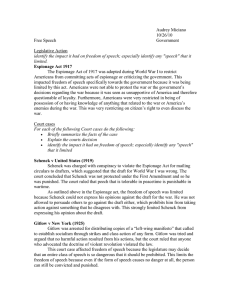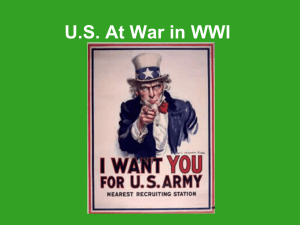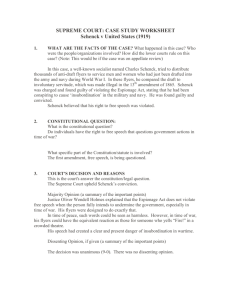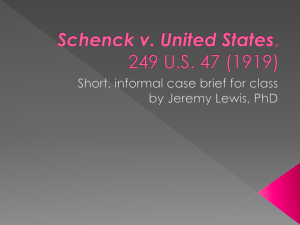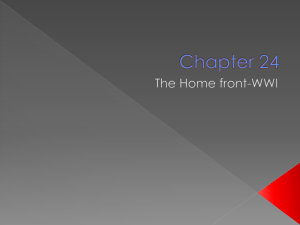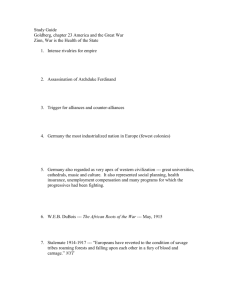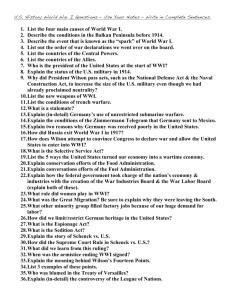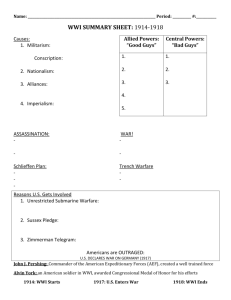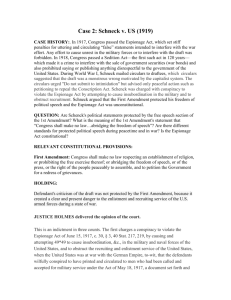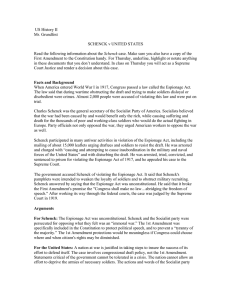Opposition to WWI
advertisement
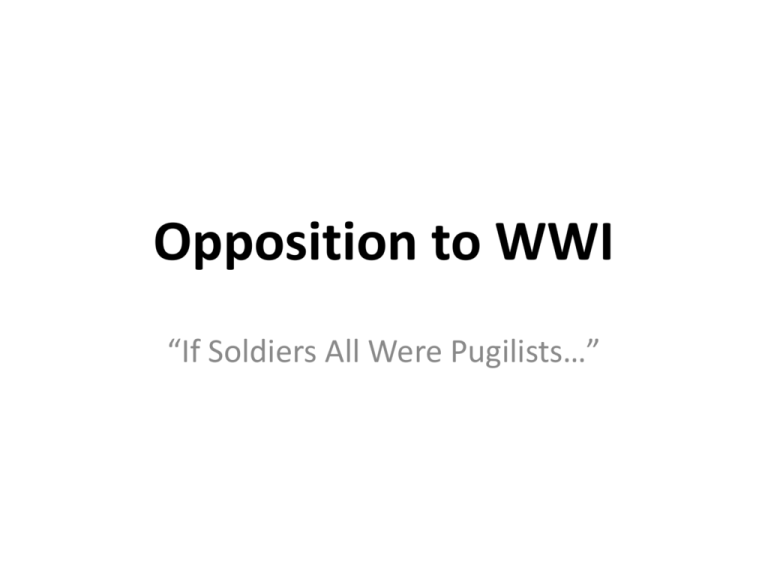
Opposition to WWI “If Soldiers All Were Pugilists…” Opposition to WWI • Many people in the U.S. were initially opposed to entering WWI. • This was the first time the draft had been used since the Civil War! • The most outspoken opponents included pacifists, labor unions, socialists, anarchists, and conservative isolationists, many of whom were immigrants. Government Response to Opposition • "The April 1917 declaration of war touched off an unprecedented campaign to stifle criticism of the government.“– Alice Wexler • Congress immediately passed legislation to silence not only anti-war agitators, but also people lumped together in the popular press as "Reds" -- left-wing activists and foreign immigrants. Government Response to Opposition • Espionage Act of 1917 – prohibited any attempt to interfere with military operations, to support U.S. enemies during wartime, to promote insubordination in the military, or to interfere with military recruitment. • Sedition Act of 1918 – Extended the Espionage Act to cover a broader range of offenses, notably speech and the expression of opinion that opposed the war or the government. Schenck v. United States • Charles Schenck – Secretary of the Socialist Party of America, was responsible for mailing around 15,000 leaflets opposing the draft to potential military draftees. • He was convicted of violating the Espionage Act of 1917. • The Supreme Court upheld the conviction, concluding Schenck did not have a First Amendment right to freedom of speech against the draft, and that he created a “clear and present danger.” Schenck v. United States • Charles Schenck – Secretary of the Socialist Party of America, was responsible for mailing around 15,000 leaflets opposing the draft to potential military draftees. • He was convicted of violating the Espionage Act of 1917. • The Supreme Court upheld the conviction, concluding Schenck did not have a First Amendment right to freedom of speech against the draft, and that he created a “clear and present danger.” • (Schenck v. United States was finally overturned in 1969 with the case of Brandenburg v. Ohio—KKK rally—with “clear and present danger” being replaced with “imminent lawless action.”) Government Response to Opposition • Deportations! – “Deportation, formerly used only for those convicted of criminal acts, now came to be seen as a means of expelling all foreign-born radicals from the country.“ – Alice Wexler – About 250 people, mostly Russian immigrants, were deported to Russia on December 21, 1919. Pro-War and Anti-German Propaganda • Committee on Public Information – Created in April, 1917, to influence U.S. public opinion regarding American participation in WWI. – Used every medium available to create enthusiasm and support for the war. – Run by George Creel • Video clip time! Yellow Legs & Pugs Solidarity Magazine, May 5, 1917
